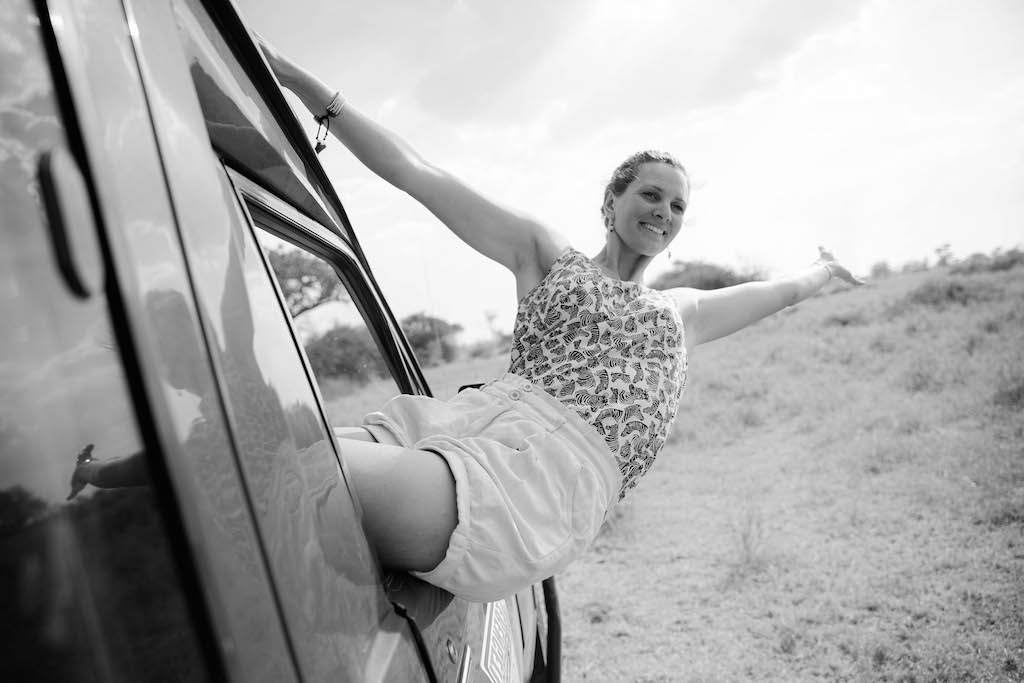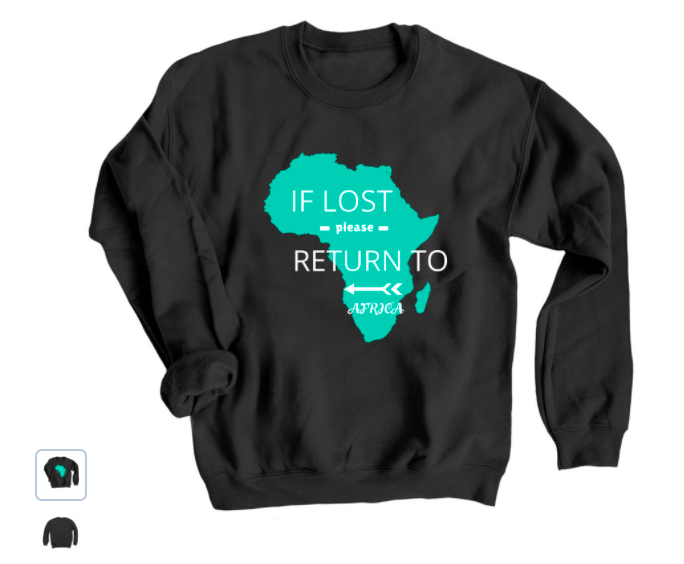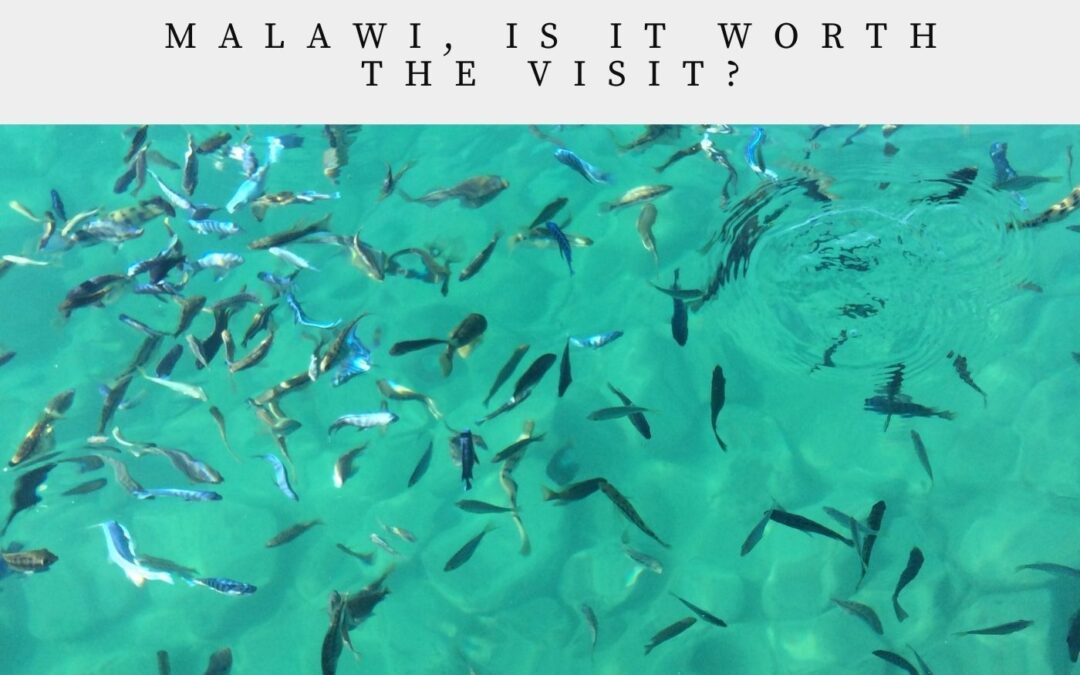
by Natasha Chapman | Sep 4, 2021 | Travel stories
Malawi, is it worth the visit?
Malawi, is it worth the visit? If the big five is what you’re after, then maybe Malawi isn’t the place for you. But if crystal clear water, unparalleled sunsets and private wildlife viewings are your priority then Malawi should be number one on your list!
Malawi is a largely overlooked African country when it comes to tourism, in other words, one of Africa’s best kept secrets. Of course, we all love safari and while on safari we all love seeing lions, cheetah, leopards and lots of action. When you think safari you probably think of the Serengeti in Tanzania or the Masai Mara in Kenya, you think of the wildebeest migration, of opportunistic crocodiles and predators waiting in the wings, of endless plains and silhouettes at sunset, great herds of elephants and journeys of giraffe. Although you will not get the concentration of animals in Malawi that you get in Tanzania or Kenya, you will also not get the concentration of people. Well not tourists, the concentration of locals however, is very high!
Private viewings
Having said that, with African Parks now in charge of a number of parks and the reintroduction of 16 species including cheetah, rhino and wild dog, the wildlife sightings in Malawi are definitely on the rise. Even with this being the case, you will never see the hoards of people in the parks that you do in Tanzania and Kenya for example. It is this that makes Malawi so special. When you are on safari in Malawi, 9 times out of 10 you will have sightings to yourself. You can enjoy those moments, just you and the animals. Those heart-pounding moments when you make eye contact when a lion which somehow pierces through to your soul.
When you are surrounded by a herd of feisty elephants (if you have been to Majete you know what I mean), when you find that oh so elusive leopard and you can revel in your luck for as long as you want without anyone disturbing you. When your car overheats and breaks down in the middle of Mejete due to blistering heat – ok so there are drawbacks as well as perks but give me a private viewing of a greater kudu over 10 vehicles tussling and pushing to see lions in the Mara any day.
I lived in Malawi for 4 years, during that time I was able to see a lot of the country. It is true Malawi is a small country, 2.1 times smaller than the UK, but it packs a big punch in terms of places to go and things to do.
[modula id=”280476″]
National Parks
I have already mentioned Majete National Park now a ‘Big Five’ park thanks to African Park’s initiatives. There is also Liwonde National Park which has also benefited from African Parks. African parks, among many other things, have kept poaching down, re-introduced cheetah, relocated black rhino to the park, and increased the number of lions. Liwonde’s magic is the river safari when you can drift by hippos fighting and get sprayed by water as elephants splash and play. Both parks are beautiful and are easily Malawi’s ‘best parks’ in terms of animal concentration. However, there are also many smaller parks including Nkhotokota, Kasungu, Nyika and more. If you want a real feeling of being out in the bush then these should not be missed. However, be warned a lot of them do not have good facilities so be prepared to camp, some places you even have to bring all of your own food as there is nowhere to buy anything. Of course, you do not want to miss the best National Park of all, the reason you come to Malawi, Lake Malawi National Park.
[modula id=”280473″]
Lake Malawi
Lake Malawi takes up almost half the country in size, it is the second deepest lake in Africa and home to more species of fish than any other lake, including 700 species of freshwater cichlids. When standing at the tidal water edge it is sometimes hard to believe it is a lake and not the sea, that is until you see a crocodile nestled on its banks or a pod of hippo submerging and re-emerging from its surface. Of course, the best thing of all is when you go for a swim and are met by beautiful crystal clear freshwater. Lake Malawi is one of my most favourite places on earth, more specifically Cape MaClear on the southern part of the lake.
[modula id=”280462″]
Laid back life
If you have been to Africa you know the pace of life is not exactly fast. If you have been to Malawi you would know if it was any slower everyone would be going backwards. You do not go to the lake for high energy, fast-paced adrenalin rush, you come for a relaxed, tranquil, reset. You can whittle away days, swimming in the lake, snorkelling in with the cichlids, paddle boarding, lounging in hammocks, reading, going on boat trips, watching fish eagles, birding, eating delicious food and sleeping under the stars. Just writing about it is making me want to go back immediately!
Where to stay
If you do go and visit, then there are two lodges I particularly recommend Mgoza Lodge and Warm Heart Adventure Lodge both of these are right on the beach in Cape Maclear, the owners care about sustainability and work together to help the local community. If you’re feeling adventurous there are also 2 islands off Cape Maclear, one budget camping island called Domwe Island and one more ‘luxury’ style island called Mambo Island. Trips to both of these islands as well as other activities around the area can be arranged via Kay the owner of Warm Heart Adventure Lodge. She also organised day activities including kayaking, boat trips, snorkelling, hikes and bike ride.
The people of Malawi
It would be wrong of me to write a blog bout Malawi without mentioning the local people. As I said before there are a lot of them, a population of over 19 million people it is difficult to find a spot to go for a quick wee without someone appearing out of nowhere to catch you with your pants down. Besides there being so many Malawians, they are the reason why Malawi is called ‘The Warm Heart of Africa’. Everywhere you go the people emit a genuine kindness. They are keen to talk to you, to direct you if you are lost, to assist you if you are struggling, to accommodate you if you are without and just to generally help in any way they can. The children love to see you and will run up to you hold your hand and escort you on your way, sometimes for too long so you have to shoo them away so they don’t wander too far from home.
[modula id=”280478″]
Malawi, is it worth the visit?
Poverty
It has to be said that Malawi is a very poor country and people do struggle to get by, many Malawian are farmers and live hand to mouth, they rely heavily, sometimes solely, on the harvest which is determined by the countries rainfall. For this reason, you will find people begging as well as street children, which is always difficult to see.
Don’t get distressed if/when people shout ‘Mzungu’ at you, it means white foreigner, it is not said to offend you. If spending time with the locals is something you wish to do then there are many opportunities for this. There are the usual ‘cultural tours’ where you pay money for an ‘authentic experience’ however I would recommend the ‘old fashioned way. Just talk to people, you can go to the local village, visit the markets, go into churches to listen to beautiful singing.
Local culture
As a general rule men will have a better understanding of English than women in rural areas so it might be best to approach them. Everyone is friendly and most people are not in a rush so will take the time to talk to you. It would also be good if you could try to learn some Chichewa, in particular, greetings as these are very important in the Malawian culture. The greeting is ‘Muli bwanji’ (how are you) to which the response is ‘Nliri bwino, kaya inu? ( I am fine, and you?).
A top tip is to remember is that a lot of Malawians get their ‘r’ and ‘l’ mixed up, so if you are struggling to understand something try swapping these two letters and it might suddenly make sense! Also, be sure to dress respectively when walking around villages, this generally means covering your knees and shoulders.
Other things to do in Malawi
- Mountain Biking – Malawi has a big mountain biking culture and organises events and races, if you don’t want to compete you can just explore the beautiful surroundings on a bike, the terrain is perfect but don’t forget your puncture repair ki
- Hiking Mount Mulanje – There are many routes up Mulanje which is accessible from the southern town of Blantyre. Mulanje stands 3000m high. The mountain club of Mulanje have made a comprehensive guide to climbing Mulanje which can be accessed here
- Volunteering – There are so many places that need your help,. If you’re a teacher you can go to one of the schools, give resources and equipment, talk to the teachers share ideas. If you’re a nurse or doctor you can go to hospitals or clinics, maybe you are a coach, instructor, therapist…the list goes on. If you are going to Malawi on holiday then bring along stationary, books, toys, medical resources etc it will all be gratefully received
- Visit the Tea Estates – Satemwa tea estates are. a beautiful place to visit. you can stay the night at Huntingdon House explore the tea estate, have high tea and play croquet on the ground.
- Play golf with zebra and giraffe roaming around you at Game Haven
- Cultural visits to villages, markets, homes
- Visit historic Livingstonia and stay at Mushroom Farm Eco Farm with unbeatable views
- Chingoni Rock Art World Heritage Site
- Visit the old colonial town of Zomba
- Purchase beautiful pottery at Dedza Pottery
- Watch the mesmerizing dance of the Gule Wamkulu
- Horse Riding along Cande Beach
[modula id=”280491″]
The list goes on… so as you can see there is plenty to do in Malawi. In addition to his, you have a relatively cheap safari, friendly people and a rich culture and traditions. So Malawi, is it worth the visit? In my humble opinion, the answer is yes, Malawi is 100% worth the visit!
Have you been to Malawi, what did you particularly enjoy? Get in contact and let me know if there is anything I have missed!
Sharing is caring
If you have enjoyed reading this post, why not share it for others to read
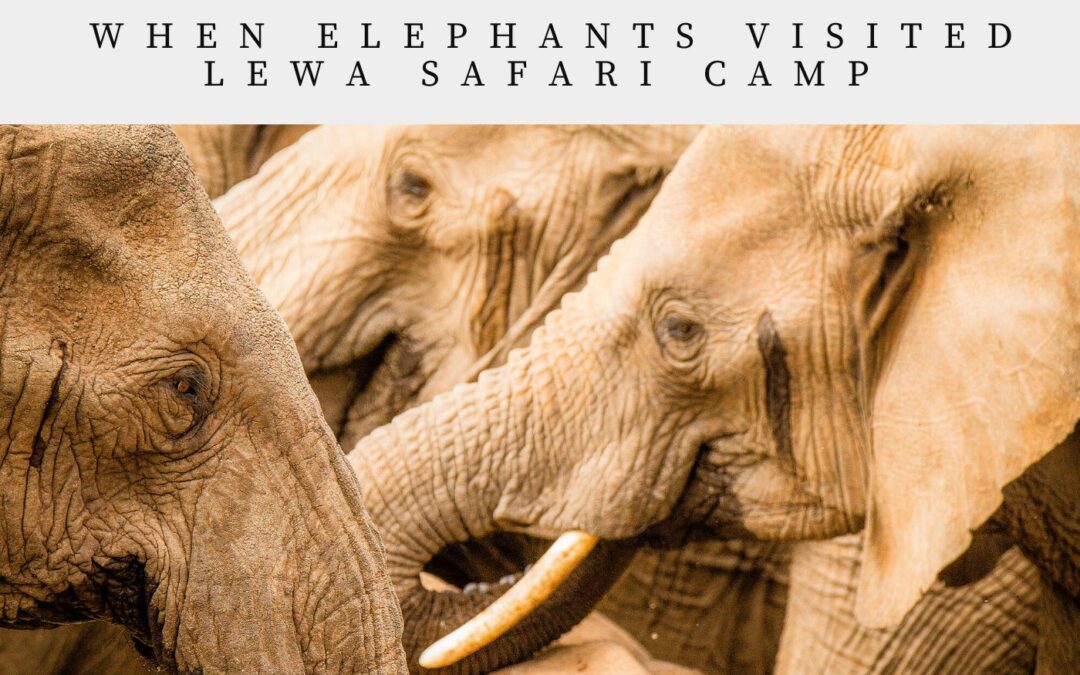
by natashacchapman | Aug 12, 2021 | Everyday life, Wildlife Photography
Let’s talk about safari. Many people have a favourite animal when it comes to what they want to see on safari. A lot of the time it’s lions, leopards or cheetahs, some kind of predator as they have the WOW factor. I understand that of course, it is exciting to see a lion, well initially it is, and then you realise that you have spent the past 20 minutes staring at a pride of sleeping lions when the only shot you can get is on the side of its face hidden in the tall grass.
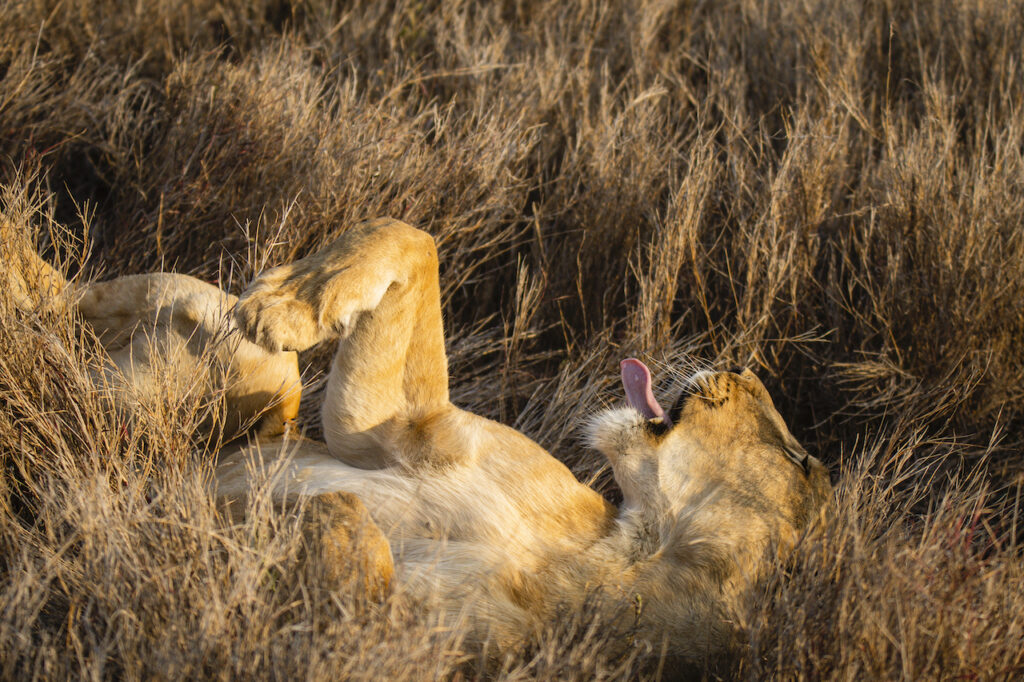
Don’t get me wrong, witnessing and getting those shots when the members of the pride greet each other or the lion cubs playing or that iconic yawning shot is very exciting, but with lions, it’s usually 5 minutes of action, which you had better not miss, and 30 minutes of sleeping.

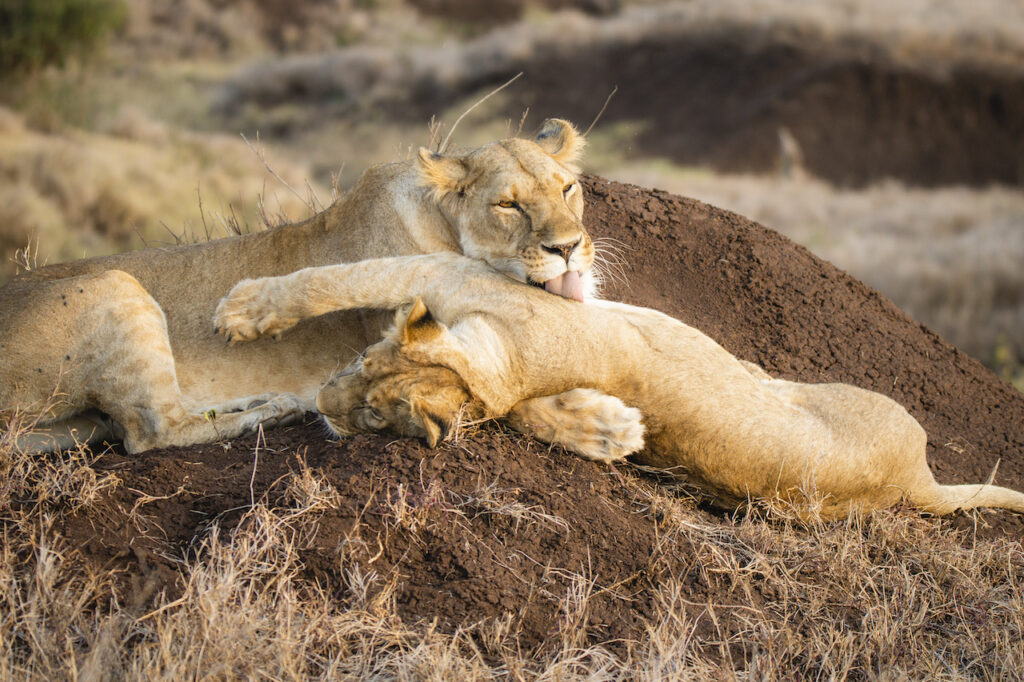
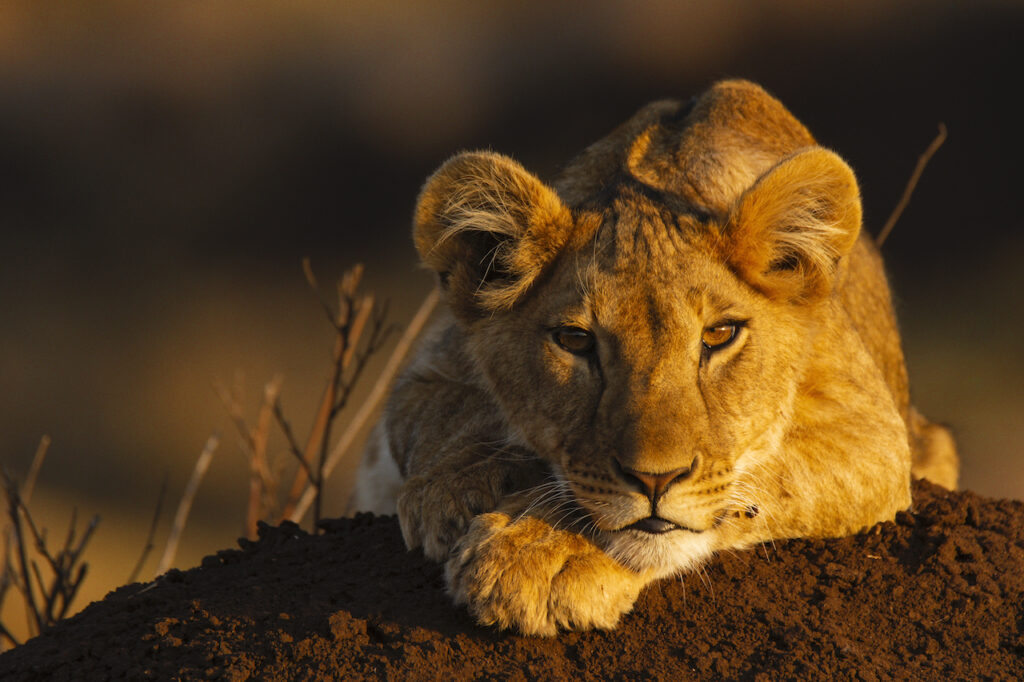
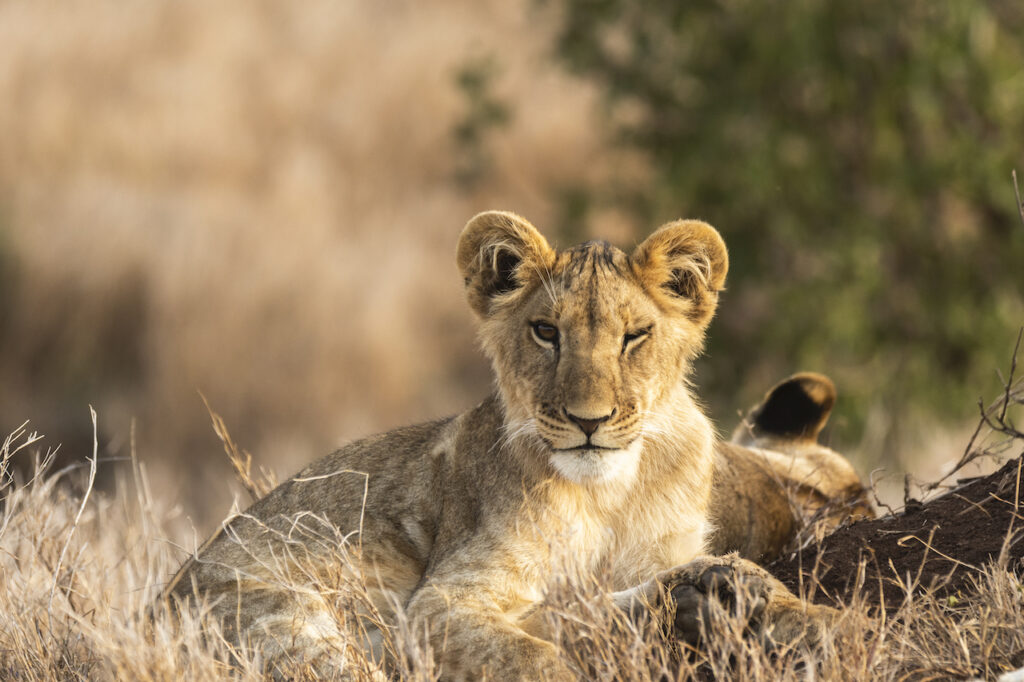
The same applies to Cheetah and leopards a lot of the time it’s a shot of them sleeping or resting, preserving their energy for their hunt.
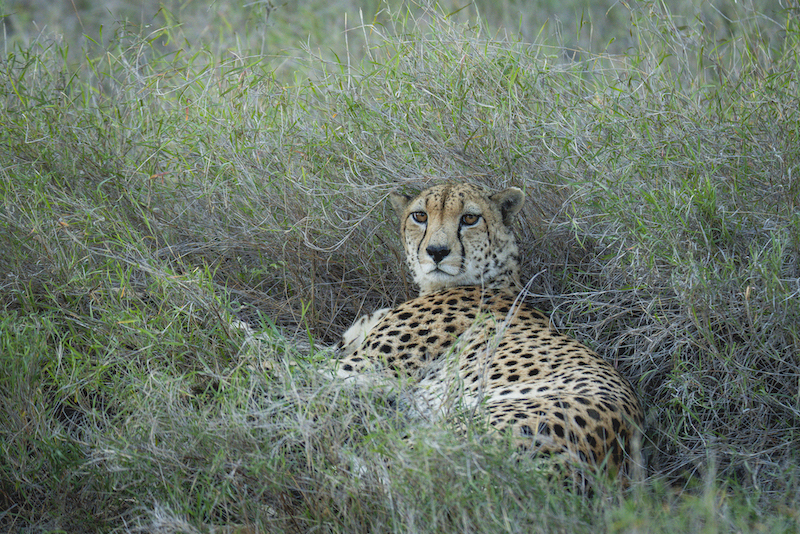
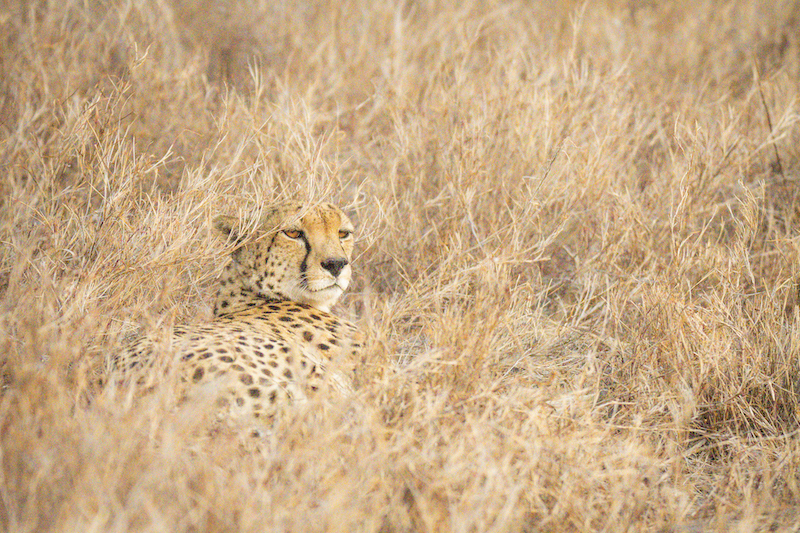
However, with patients, you sometimes managed to get some kind of action shot, for example, a shot of a cheetah with Mount Kenya in the background
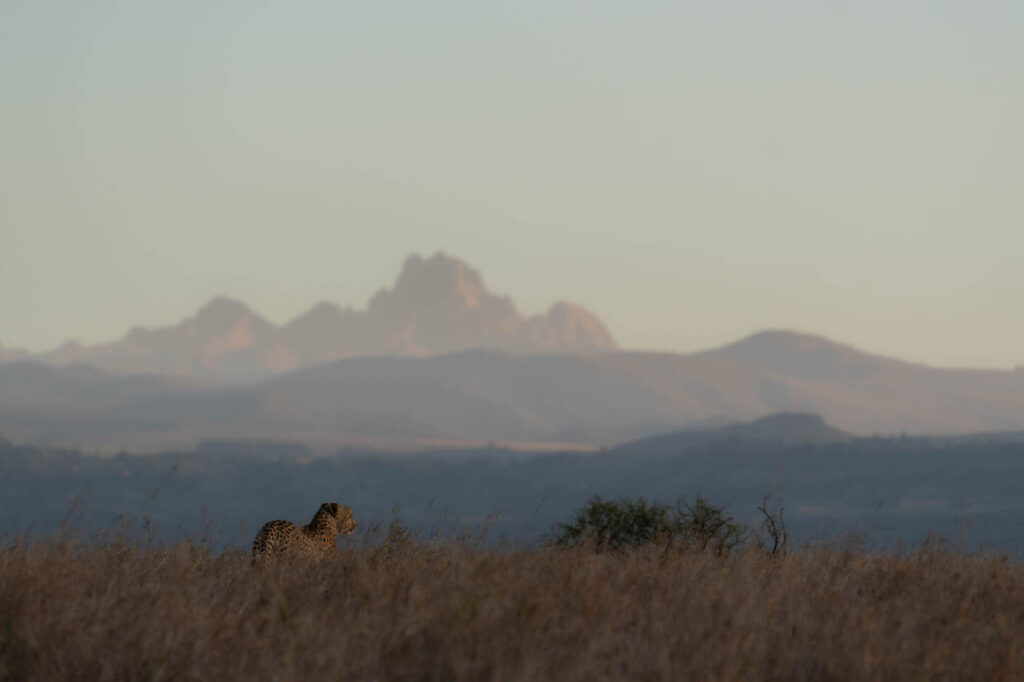
Or a scene you can turn into an artistic low key shot:

But the chances of seeing action when observing predators is quite low. I have lived in Africa for 7 years, been on countless safaris and in my lifetime I have seen one successful lion hunt, and one failed hunt, one successful cheetah hunt (a VERY long way away) and maybe 3/4 predators with kills that they had already made. While of course, these were amazing experiences, this is the exception rather than the rule. The likelihood of seeing some action is not really in your favour.
Let’s Talk About Elephants
If action and entertainment are what you are looking for when on safari then elephants are the animals for you. Yes, elephants do spend around 80% of their time grazing but during that time there is always a lot more going on. Elephants live in herds led by a dominant female called the matriarch. The matriarch is the oldest and wisest female of the group, she leads the herd to their feeding ground, to water and generally looks out for everyone’s safety.
Within the herd, there are usually one or two young calves. Depending on the age of the babies they are sometimes difficult to spot, very young calves (below one year) will still fit under their mother’s belly and spend all of their time close to her and usually shielded by the rest of the herd.
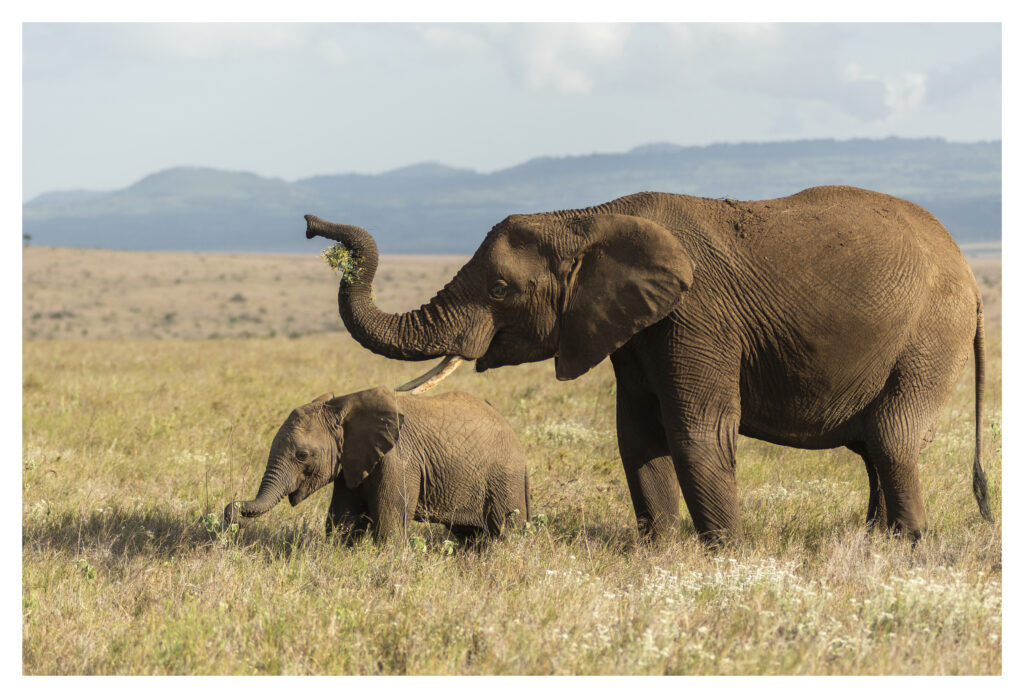
As they get a bit older they venture a bit further away and they are endlessly entertaining to watch, especially when they have not yet figured out how to use their trunk.


There will also be some adolescents who still at times play with the younger calves, or tussle with each other, especially younger males as they wrestle to test their strength. The adolescents are usually the ones to show you how big and strong are by flaring their ears and doing a mock charge at you to show you who’s boss.
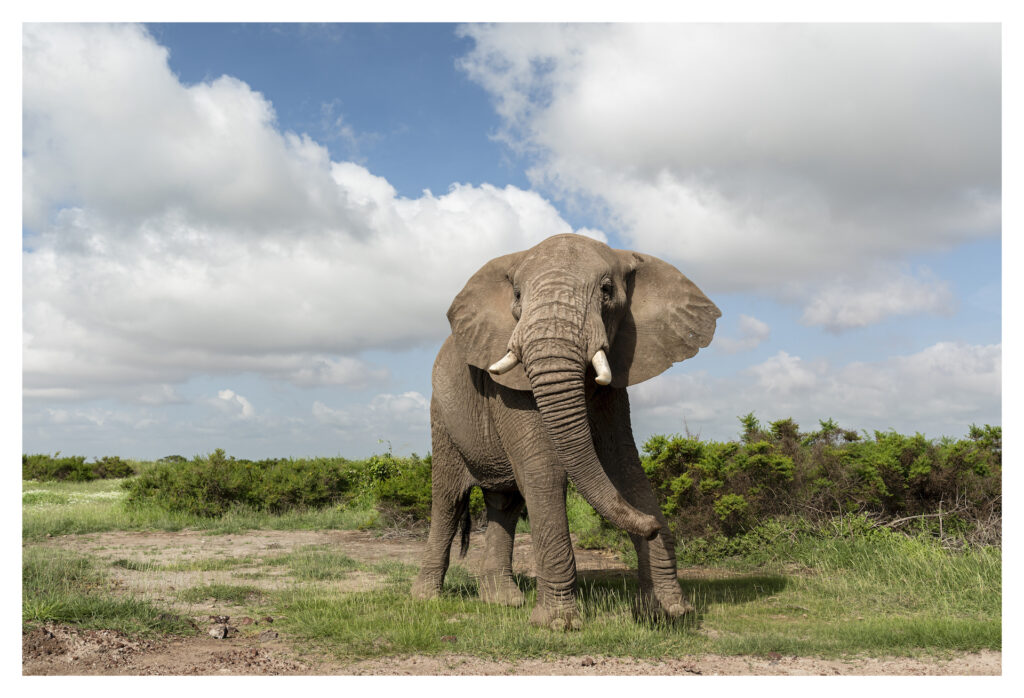
When these bulls (males) become a bit older (around 12 to 15 years of age) you will find them on the outskirts of the herd. Bull elephants are slowly pushed away to prevent inbreeding within the herd, but they are sometimes reluctant to leave the safety of the group. The outcast males eventually go off on their own and roam alone. They are kept in good behaviour by the dominant bull in the territory who gets breeding rights with the females. Eventually, the young bulls will challenge the dominant male to try and win breeding rights.

Elephants are such gentle giants, you will be amazing at how a whole herd of 2-7 ton mammals can move so silently and quickly through the bush, you can literally lose sight of a 10+ strong herd in a matter of minutes.
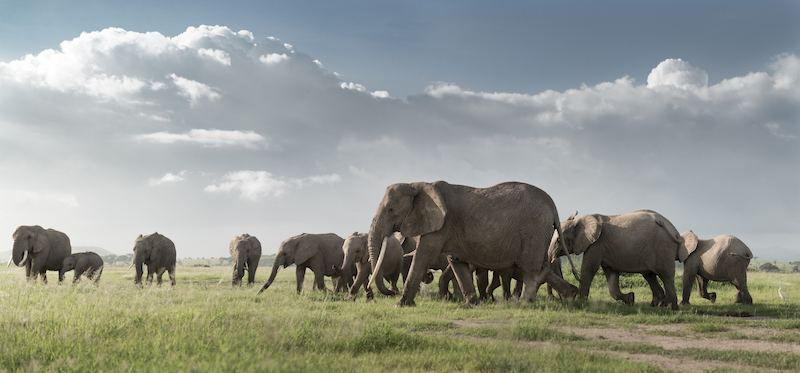
It is also fascinating to watch their feeding habits when the adults reach up to the branches balancing on their hind legs to bring down food for the smaller elephants,
They also use their feet to dig up the root of the grass and then hit the grass against the floor or their tusks to knock the soil off, this prevents unnecessary grinding down of their teeth as much as I’m sure it also doesn’t taste great. As I said there is always something interesting to see when watching elephants and the following image is one of my personal favourites as it is so unusual, this particular ele had a persistent itch and found the perfect tree to be able to scratch it:
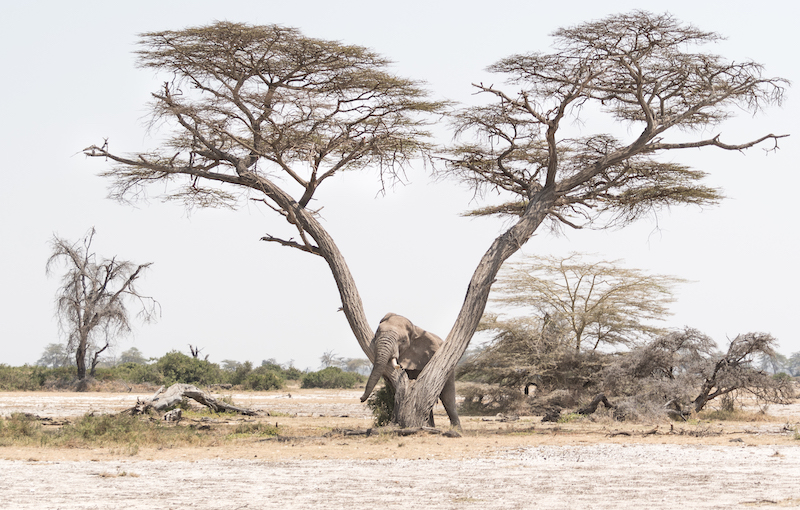
One of the best times to observe elephants is when they are by water. At the first sight of water they often get so excited they can’t help but trumpet and run towards it. When drinking they are able to suck up around 10 litres of water in one trunk full. At a waterhole, you can often see the social structure in action as the matriarch is the first to drink and decided when it is time to move off. Once they have finished drinking they then enter the water and splash around and wrestle or splash water over themselves to cool themselves down. An elephant is fortunate to not have and predators that are able to take them down (besides humans) so they are able to spend time enjoying life and securing social bonds. I can spend hours watching elephants and never get bored.
This video was taken in Randelin Wildlife Management Area, just outside Tarangire National Park, Tanzania where Tarangeri Tree Tops is located
This is a great way to observe elephants as it allows you to get close without being obtrusive or putting yourself or the elephants in danger. It also gives great opportunities for unique low angle photos.
Recently a herd of elephants camp to the camp to visit. The waterhole at camp had just been fixed and the elephants could obviously sense this and they were coming to get the first taste. The herd walked past the entrance to the lodge and followed the fence around until they got to the water. This gave me a fantastic opportunity to be on foot (safely behind an electric fence) while they walked past. I was lying on the ground to ensure the best angle to give the elephant the status it deserves. From a game viewer, the elephant is undeniably impressive but from the ground level, there is nothing more intimidating than a herd of elephants marching less than 50 yards away from you.
Once around the other side of camp, they made straight for the waterhole and spent around an hour drinking, feeding and cooling off, much to the guest delight at they had their afternoon tea. Here are some of the shots (available as fine art photographic prints) taken on the day:
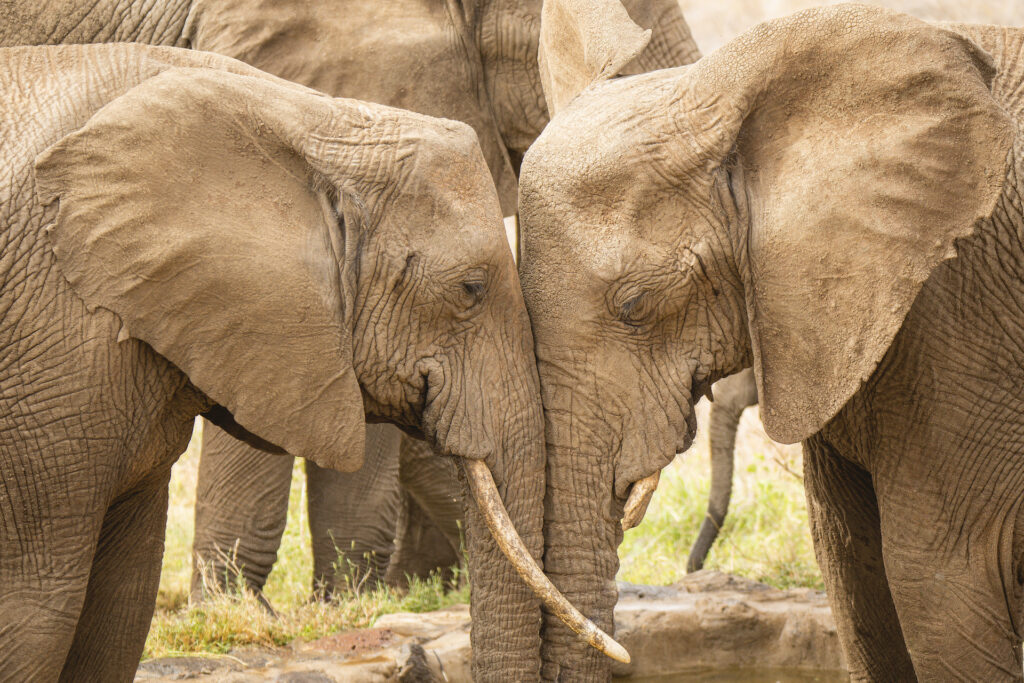
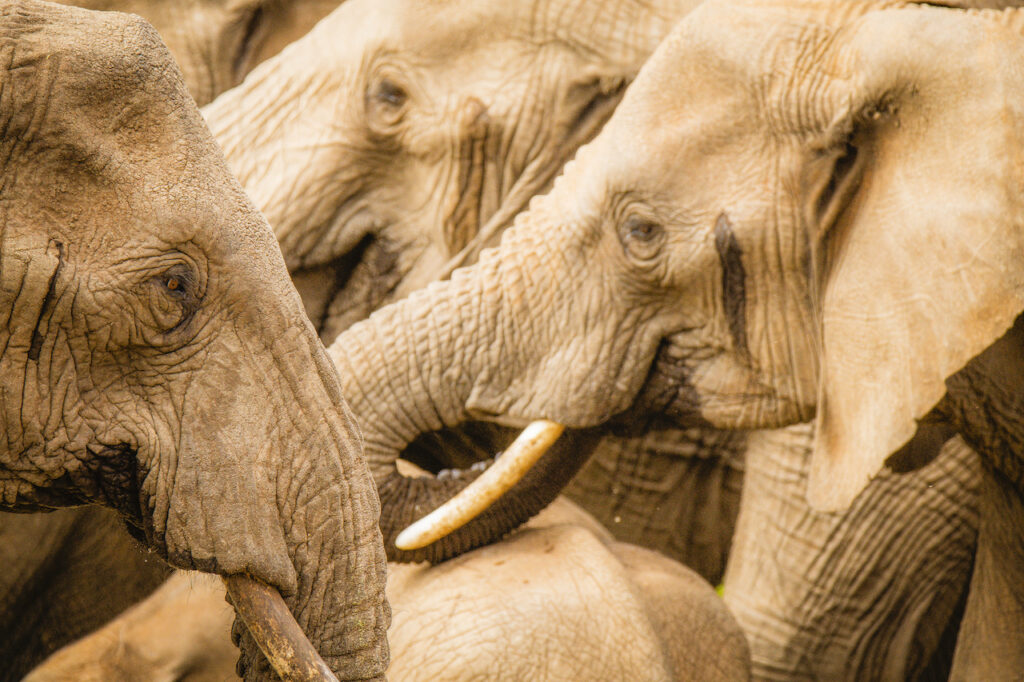
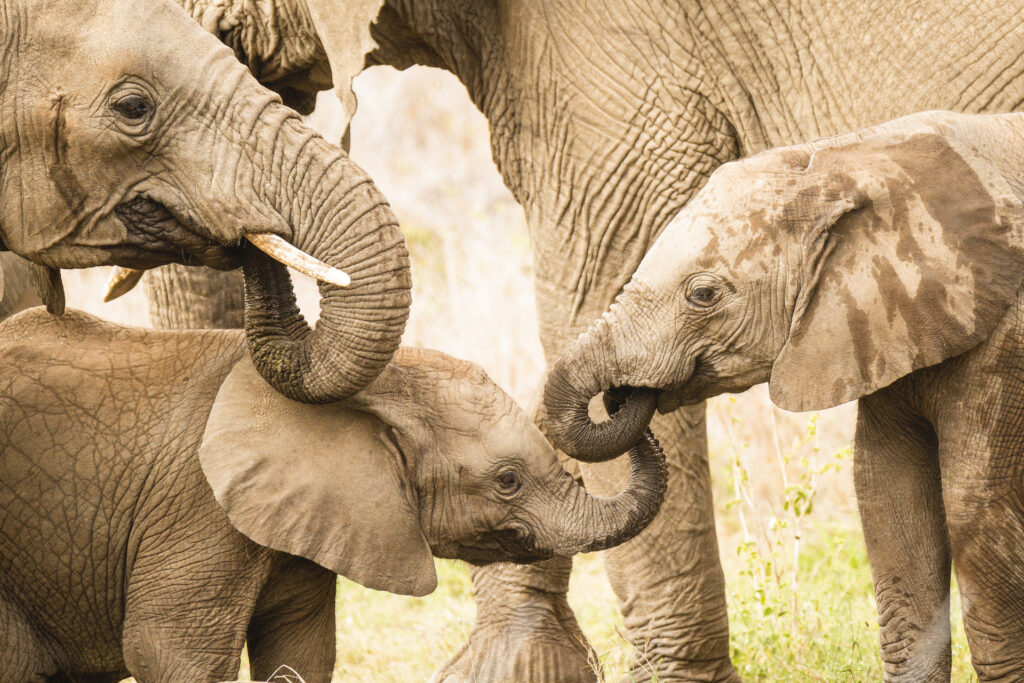
If elephants are your favourite animals are elephants and you are looking for the best places to see elephants then I recommend 2 places, in particular, one is Tarangire National Park in Tanzania, for that luxury trip you can stay at Tarangire Tree Tops and Chobe National Park in Botswana. I personally have been to both of these places (Tarangire on many occasions) and have never been disappointed.
With regards to reading more about the social structure of elephants or just learning a bit more about them from an expert then I recommend reading ‘The Elephant Whisperer’ by the late Lawerence Anthony it’s an amazingly touching story about his life with a herd of troublesome elephants on his conservancy in South Africa:

The sequential book ‘An Elephant in my Kitchen’ by Lawrences’ wife Françoise Malby-Anthony is the story of how she continues her late husband’s conservation work, expanding to caring for not only orphaned elephants but also orphan rhinos, and the consequential lessons she learnt about ‘love, courage and survival’ is also definitely worth a read.

Check out other images available for purchase as fine art, sustainable photographic prints delivered straight to your door:
-Colour collection
-Black and white collection
-Dark Collection
-Light Collection
-Nursery Collection
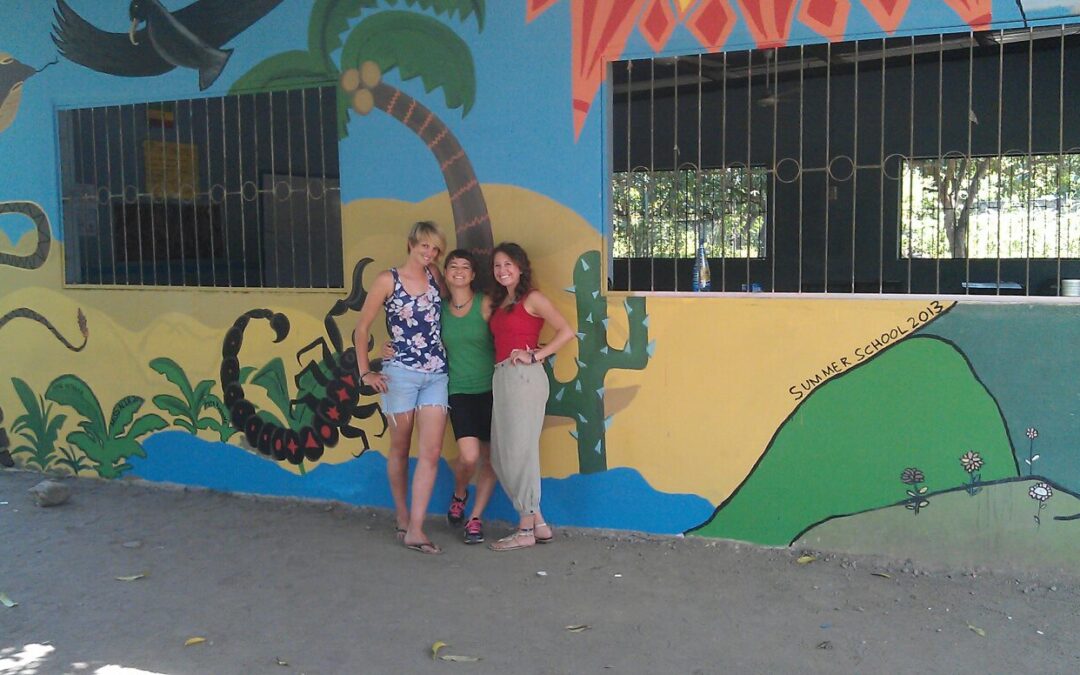
by natashacchapman | Jun 25, 2021 | Everyday life, Travel stories
As promised here is the next instalment of volunteering information, please bear in mind this is all purely from my perspective from my own personal experiences and therefore not to be used as a hard and fast guideline for volunteering. Whenever you are thinking about volunteering you should always research the companies and see if they are reputable, where the money goes, what impact they have had etc.
I have had few experiences of volunteering, my first as I wrote about previously was in Tanzania in 2012 with a company called ‘Original Volunteers’ to be honest I don’t think it is very easy for me to review this company, it was such a long time ago, it was a brand new project and I have had no dealings with them since. In fact, I have just googled them to find a link but it appears they are no longer running. What I will say it at the time their pricing was fair, there were a few hiccups but there was always someone available to discuss issues with and most things got resolved in a timely manner. In this volunteering experience, I assisted teaching in the local school and helped dig foundations for a new orphanage that was to be built. I also had a bloody good time getting to know my host family, going on adventures and experiencing new cultures, food and traditions.
My next experience of volunteering was in Honduras 2013 teaching in a bilingual school. The interview was a skype interview with an 18-year-old who was in charge of the school, he was not a teacher but was in charge of hiring, teaching and running the summer school. The emphases of the summer school was to improve the students English, as it was a summer school it was optional for the students so the classes were not full and I guess what was being taught was not part of the curriculum but an ‘added bonus’. I mention this as I am assuming this is the justification behind having an unqualified teacher in charge of the school. Don’t get me wrong, I have nothing against the guy in charge, he was a great guy, whose heart was in the right place, but he was not qualified to be in the position he was in. There were a number of other volunteers there at the same time as me, some qualified some not. However all of them put their heart and soul into the school, we walked or got a tuk-tuk to school every weekday, we taught lessons, we played with the kids at break time, we ran fundraisers at weekends to try and get more equipment and resources for the school, we discussed lesson plans and how to tackle difficult situations in class, we bought resources from home or made them, we helped each other and we all gave it our best. My point here is that despite the fact that we were basically left to our own devices, we were headed by an unqualified teenager, we were of course not getting paid, some of us didn’t even speak the language, I still feel like we made a positive difference. Those kids learnt more English that summer than they would have had we not been there. Of course, we also gained from the experience, we made strong friendships, we got to know the locals, we were invited into the homes of the students for dinners and celebrations, we experienced situations that you wouldn’t get if you were just a tourist passing through, we went on adventures including white water rafting, jungle trekking, we ate local cuisine and again became part of the community. After the summer school ended another volunteer and I got a (very rocky) boat to Utili and did our PADI diving course. So yes, we did gain from the experience but importantly I feel like the students did too and it was not all in vain.
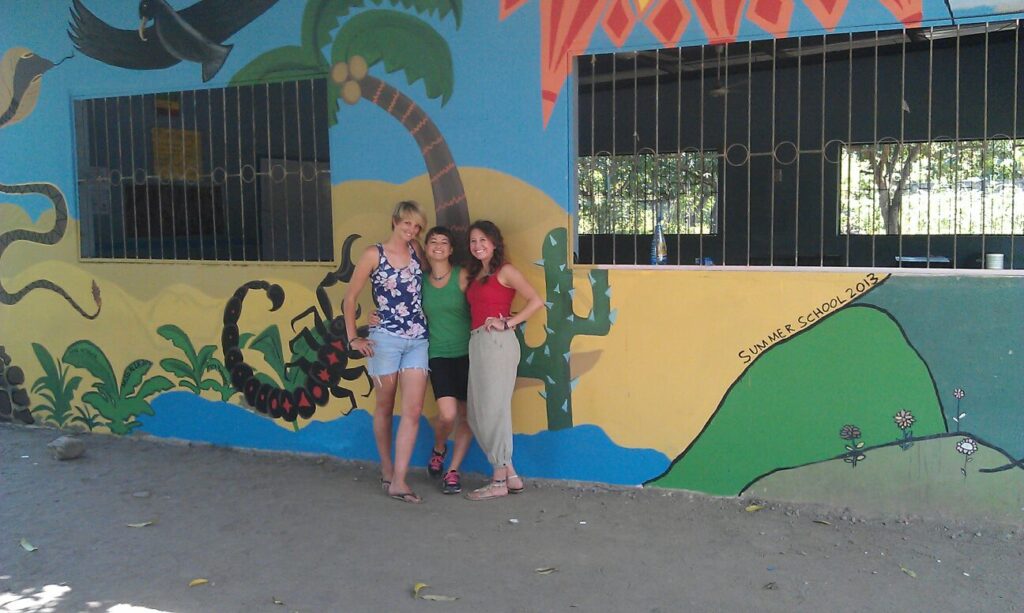
The point I am trying to make here is that I think there are two types of volunteering placements. The ones where you have to go through strict interview progress, meet lots of minimum requirements and qualifications, jump through lots of hoops, and usually pay a substantial amount of money all for the privilege of being able to work for no pay. Or the type of volunteer placement where they accept basically anyone, including fresh out of school students without the right experience or qualifications and leave them to it and hope for the best. While it would seem the former type is the better, I still believe that the latter can be of use and beneficial if the volunteers themselves are passionate and dedicated.
Throughout my time in Honduras, I had no communication with anyone from the volunteer company, to the point where I can’t even remember the name of the company. I remember we had a volunteer house to live in and someone organised pick up from the airport but in all honesty, I can’t think what else they might have done. I do remember the police coming to the school one day demanding our passports and to see our volunteer permits which I don’t think we had. This leads to my next important point, this type of volunteering can also be potentially dangerous. On that day we said we didn’t have our passports and they eventually left, it could have very easily gone a different way. This is where the first type of volunteering comes in useful. There are people who organise that for you, they know the laws of the country and make sure that you abide by them all, there is someone on hand to help you should you have any problems, you usually have meetings or training prior to the placement to discuss any issues, meet people and have your questions answered. However, as always this is not always the case. While I lived in Malawi I spent some time volunteering. This was different to the other previously mentioned volunteer experiences where I went to the country specifically to volunteer. In this case, I already lived and worked in the country and just volunteered in my spare time.
My time volunteering in Malawi was my best experience. From 2014 – 2016 I lived and worked in a private school in Kasungu, north of Lilongwe. The school was a boarding school a long way from any big towns so was quite isolated. A few other teachers and I found ourselves spending a lot of our free time at the local orphanage. It was not formal volunteering, we would just go and play with the kids, help bath and dress the babies, chat with the older kids, we even started bringing students from our school to the orphanage, we literally just spend time with them giving them some attention and the mama’s (ladies who worked there) some time to wash the clothes and the rooms etc in peace. I worked at the school for 2 years so I spent a significant amount of time at the orphanage, I knew every child and mama by name and character and really became part of the community. Over time we wanted to do more to help and eventually, we set up a nursery school at the orphanage, employed a teacher, bought in resources, did some training with the teacher and the mamas and with time had a fully functioning nursery school so that the youngest students could start learning at home to get a head start before they went off to school. I still get updates from the school and see how the children and mamas are doing.
[modula id=”276417″]
When I moved to Blantyre in 2016 – 2018 I again found a local orphanage and would go and help out, help kids with homework, play sport and just generally spend time with them. While there I met a lady who had come to volunteer, she stayed at the orphanage and help out where needed. I got chatting to her about her volunteer experience and what she thought about it ect. the long and short is that she spent over $2000 to be able to come and volunteer, on top of that she had to pay to go to a 2-week’ training camp’ prior to her volunteer placement and still had to pay the orphanage directly to assist with costs towards her food and lodgings. When I asked the owner of the orphanage if any of that $2000 goes to him he said he didn’t know anything about the money.
All of this leads me to describe my next volunteer experience and one that I think is the best model I have experienced. Having already been living in Malawi and casually volunteering in my spare time, I felt like I was aware of how things generally worked in East Africa (a huge generalisation, I am aware) and didn’t feel the need to pay a company sitting in their posh office in London a large amount of money to organise my next volunteer placement. I had some friends who wanted a new experience (coming to Africa) and wanted to do something useful while they were there. Both friends and I are teachers and so we had a long summer holiday to use. We decided on Tanzania as our destination and set out looking for a worthy cause for us to input our efforts into. That was when we came across The Greenhouse Hostel.
[modula id=”276371″]
The concept behind the Greenhouse Hosel is great, at its most simple it is a friendly, affordable place to stay with like-hearted others, in simple dorm (there is one private) rooms, where food is also provided within the rate. But it can also be so much more than that. If requested the owner Benson can also organise day trips and excursions, or multi-day safaris or hikes. He welcomes you into his home as if you are family as well as the other staff who throughout my stay also became good friends. Even more that, if requested, he can organise suitable placements for your to volunteer in during your stay. He personally vets each and every placement including schools, hospitals, orphanages and general community projects to ensure that they are suitable for volunteers. Within this vetting process, he ensures that they are above board and transparent with all of their dealings including what is expected of their volunteers and where all donations go. He has regular meetings with the placements to ensure that he can best place volunteers in the most suitable placements to ensure their needs are met. Benson also personally checks up on volunteers throughout their placement to ensure that everything is going smoothly and that the volunteer is doing well and doing what is required of them. Benson is always on hand if anything is needed and both the placement and the volunteer can speak to him if they have any problems. For our trip he organised pick up for us at the airport, a suitable school and orphanage for us to volunteer in, transport for us to get to placement, volunteer permits, a welcoming home, weekend activities and we woke up to breakfast already prepared and came home to an evening dinner ‘family style’ every evening. We became good friends with Benson and the other volunteers and hung out frequently throughout our stay, giving us a locals perspective on Arusha. There were no extra costs for him to organise all of this, we paid for our volunteer permit ourselves and of course, any weekend activity costs (including trips to the hot springs, and hikes up Meru) but other than that the costs were only for the accommodation which included meals. What I love most about this concept is the fact that it doesn’t take advantage of the volunteer or ask for anything extra of them. This model allows tourist to visit Tanzania, give back to the community and experience the real Tanzania all in one trip without paying an extortionate amount of money in order to do so. It also allows you to build real connections with people who live and breathe the experience every day instead of an abstract person somewhere else being your point of contact. If people have a positive experience volunteering it can have endless opportunities, it can lead to lifelong connections and continued support. I remain friends with Benson to this day and hope we can continue to support each other if needed. Of course like many other businesses that rely on tourism Benson’s is suffering and he hasn’t had many volunteers this year due to covid. His business supports schools, orphanages and hospital in his community as well as supporting other community projects like planting trees. He and the projects he supports are in need of donations and volunteers so if you are able and willing please do have a look at what you can do to support, whether it be physically going to volunteer or assisting with donations. Here are a few photos from my recent trips to revisit the school and orphanages I worked with when I volunteered 5 years ago.
[modula id=”276388″]
So as you can see I have has a few experiences with ‘cowboy’ volunteer placements and others with more reputable companies. My problem is I am in the camp of not expecting to pay through the nose and jump through tones of hoops to enable me to ‘help’ others for free. Alternatively, I do get that sometimes what we do is not really helping, a bunch of high school kids coming over to Africa to play with the orphans and post photos on their Instagram about how much they are helping these poor kids can indeed fuel the ‘white saviour’ mind frame. My way of overcoming this is to always volunteer in a field where I think I can actually be of use and bring some experience and knowledge that will actually help. I have always volunteered in the teaching sector where I feel that as a teacher who trained in England I have had more extensive training than teachers in the countries in which I have volunteered, but also just different experiences so that we can have discussions and share experiences. This means I can also, of course, learn from them as much as they can learn from. Isn’t that also the point. To share experience and ideas, to have discussions and try and do something positive.
So there you have it, my thoughts and experiences of my volunteering, despite some of the experiences not being the most organised or official, I still loved all of them and I would recommend it to anyone.
If you have any comments or questions please feel free to post them below or if you want more information about the projects at the Green House Hostel or of the other mentioned projects please don’t hesitate to get in contact.
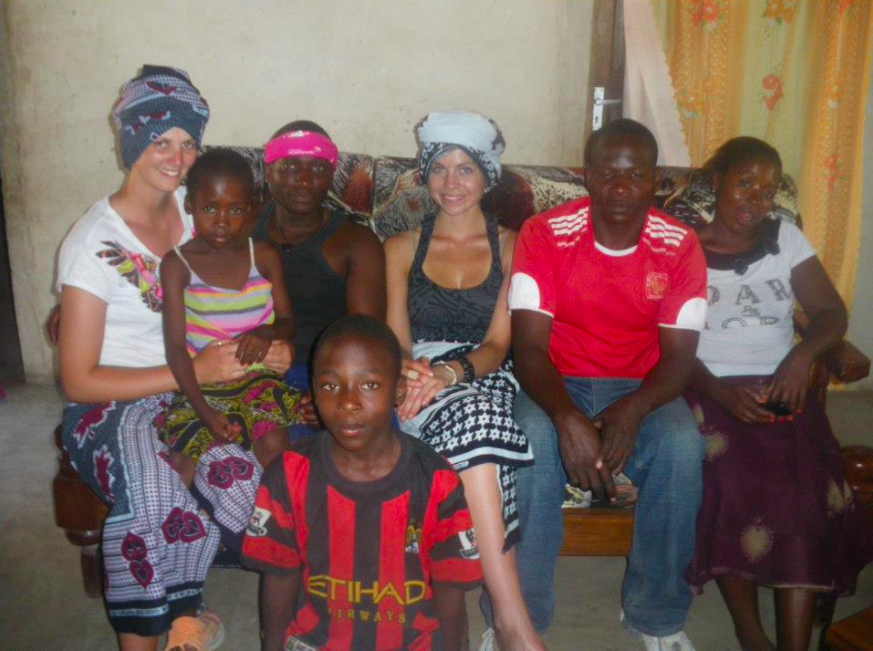
by natashacchapman | Jun 13, 2021 | Everyday life, Travel stories
Getting involved in the community surrounding where I live is something I think is very important. I feel like I am in a privileged position and it is my duty to be able to share my knowledge and experience and help others as best I can. For me I don’t like to do that with money as such, there are obviously many different ways to get involved and help out others and for some people, the best way to do this is with monetary donations and that is of course very useful. After all, money makes the world go round so we all know it is a necessity in life. For me, however, I like to physically get involved, I have had the opportunities to volunteer in a few countries over my time, including Tanzania (on two different occasions), Honduras and Malawi. Again, I appreciate not everyone has that option and I am fortunate to have the time (school holidays) and the disposable income to be able to travel.
There are many arguments against this type of volunteering, which these days have become such a big business its called ‘volunteerism’. One argument against this type of volunteering is the fact that you spend so much time and money getting to the country, accommodation, food, travel insurance and then of course the fact that some companies charge an extortionate amount for you to have the privilege of volunteering (which you are never sure where it actually goes). All of this money is, therefore ‘wasted money’ and would be more beneficial if you just gave it directly to the organisation for them to do as they need. While I completely understand this argument and in some cases it is true, I stand by my choice to physically volunteer and here is why. If I was to volunteer or not, I would still travel, so why not volunteer while I am travelling. I have had so many amazing experiences while volunteering, I have grown as a person and I have taken those new experiences, new knowledge, new understanding with me to each new job, country and volunteer placement. I have met wonderful people, both other volunteers and locals from the communities I volunteered in. I have made lifelong friendships. I have gained as much from volunteering as I have given and I believe that is the best thing about it. Ultimately for me, volunteering has led me to where I am today, without my first experience of volunteering, I would not be sitting here in Kenya writing this blog.
My first volunteer experience
In 2012 I had my first real volunteering experience, I choose to go to Tanzania because of my love for nature and wildlife and of course the opportunity to go on safari while I was there (and a cheeky visit to Zanzibar). I choose a new volunteering company and in all honestly, a large part of the reason for choosing this company was the small fees involved, I think it was around $200
(compared to the $2000 other companies were charging). By paying these fees it meant that I had a company behind me, a person to meet me in the country who would set me up with a project and organise accommodation etc and peace of mind for my mum who had a number to call should anything go wrong. So off I went, on my own, for a month and a half in Tanzania. At Kilimanjaro International Airport I strolled out of departures, carrying only my hand luggage. After waiting a long time by the carousel it was clear my bag had not made it to Arusha with me and I was told it was stuck in Ethiopia and I should call tomorrow to see if it has made it. I met a man holding a sign with my name on it and as it was late at night I was dropped at a hotel and told he would be back at 4:30 am to pick me up. Bewildered I quickly fell asleep and woke up not long after, put the same clothes back on and went to meet him at reception.
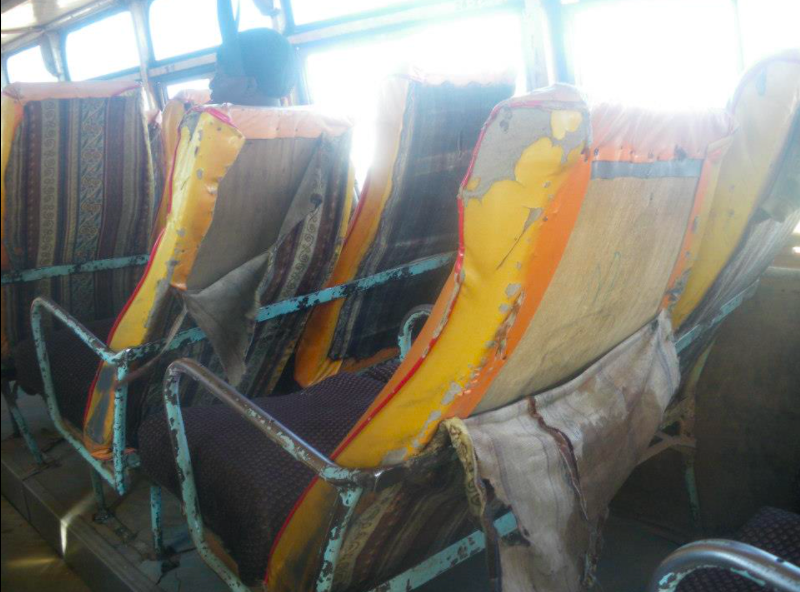
I was then driven to a chaotic bus station, given a ticket and bundled on a very old, bedraggled looking bus and bid farewell. I had no idea where I was going, how long I would be on the bus for or how long until I got hungry (anyone who knows me knows this is never long) and of course, what was I going to eat!
After hours sitting at the bus station, cramped in my seat surrounded by many more people than there are seats (if you have travelled on public transport in Africa then you know) and a box of chirping chicks on the luggage rail above my head, we finally started moving. As it turns out the bus was on the way to Iringa, a southern town, some 692km from Arusha. Along the, at least, 7 hour journey we suffered one break down and had to stop and wait for another, equally dilapidated bus to pick us up and continue the journey, many hair raising moments (bus drivers are notoriously crazy, dangerous drivers), a few ‘wilder wee’ toilet stops where conveniently people come rushing to the windows of the bus holding up buckets of boiled eggs, samosas, mandazi and much more, a preacher who boarded the bus at one stop, preached very loudly for 3 hours and then got off at the next stop and the slowly withering chirps of the chicks above. On one of the toilet stops, I saw another ‘mzungu’ (white foreigner) and decided to talk to her, correctly assuming she would also be here to volunteer. It was lucky we made friends as we found ourselves sharing a bed that night in a sad little hotel for our stopover in Iringa and me wearing her clothes for the next 2 weeks (I found an underwear shop in Iringa to get some essentials) while I waited for my bag to miraculously turn in our final destination, Tungamarenga. A small little village which turned out to be the gateway village to Ruaha National Park, where I took my first safari, igniting my love of safari.
Please excuse the poor quality of the photos, these were taken many years ago with a very old school little digital camera!
[modula id=”275189″]
So that was my introduction to Africa, lost baggage, cramped, broken down, dangerous bus journeys, roadside wees, and bucket food. If anyone knows Africa they will know that the story continued in a similar fashion of un-organisation, hilarious events, un-communicated situations, strange food, warm welcomes, un-parallel kindness and generosity and general amazingness for the next month and a half. Said mzungu and I became good friends while we lived with a local family in a house with no running water or electricity, cooked outside on fire in a hut, dug foundations for an orphanage, taught in the local school, played sports with the children, cooked dinner with mama, herded goats and danced with the Maasai, listen to beautiful choir music in the church, learnt about Tanzanian culture, told stories around the campfire and harvested sugar cane from the fields. We became part of the family and the extended community, we carried water on our heads from the water pump, washed our clothes and our bodies in a bucket under the starry sky and swept the ground until there was not a blade of grass in sight! I can still remember all of it as if it was yesterday.
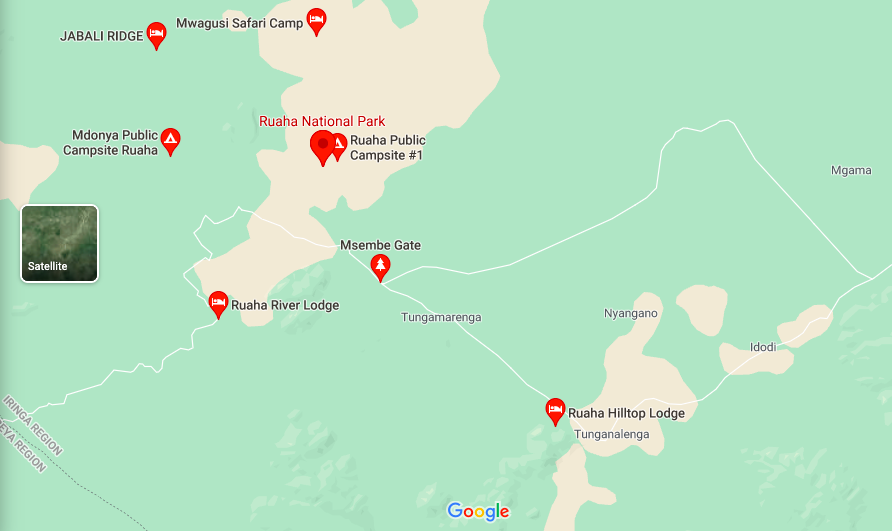
I recently revisited Tungamarenga, we stayed there before continuing on to safari for the second time in my life at Ruaha National Park. Armed with just a photograph on my phone, I asked in the local pub if anyone knew the guy in the picture. His name is Pascal and he was the person who looked after us throughout our stay, he was the eldest son from the household we stayed in and he became a good friend. The first person I asked about the photo said he knew him, he was his friend and he would call him. 10 minutes later I was reunited with my friend from around 9 years ago and I was able to buy him a beer and catch up with how everyone is in the family. It was amazing to be able to see him and reminisce about stories from many years ago.
[modula id=”275289″]
If you would have asked me then if I thought I would be back here ever again, the answer would have been 100% yes. As many people know, once you have been to Africa, you will definitely come back, and that’s exactly what I did. I continued my university education upon returning to the UK and then the first opportunity I got I returned to the continent. I finished my PGCE (teacher training) and my NQT (Newly Qualified Teacher) year and then applied for a job in Malawi. I spent 4 years there, then 3 in Tanzania and I am now in Kenya and I haven’t looked back since. Throughout my time I have always tried to get involved with the communities where I can. I think volunteering is one of the best things you can do. Yes it does cost money to do it, but it shouldn’t cost an arm and a leg and you should always check out the reputation of the company you volunteer with the ensure that the money goes where they say it does. You don’t always need a company either, there are many places you can volunteer without paying fees if you are confident enough to travel and seek them out for yourself. Some companies also have minimum fees to cover their costs but not to make money. In my next blog I will be giving some information about the companies and organisations I have volunteered for and the projects they have been running/are running.
Thanks for reading, I hope you have enjoyed my trip down memory lane





























